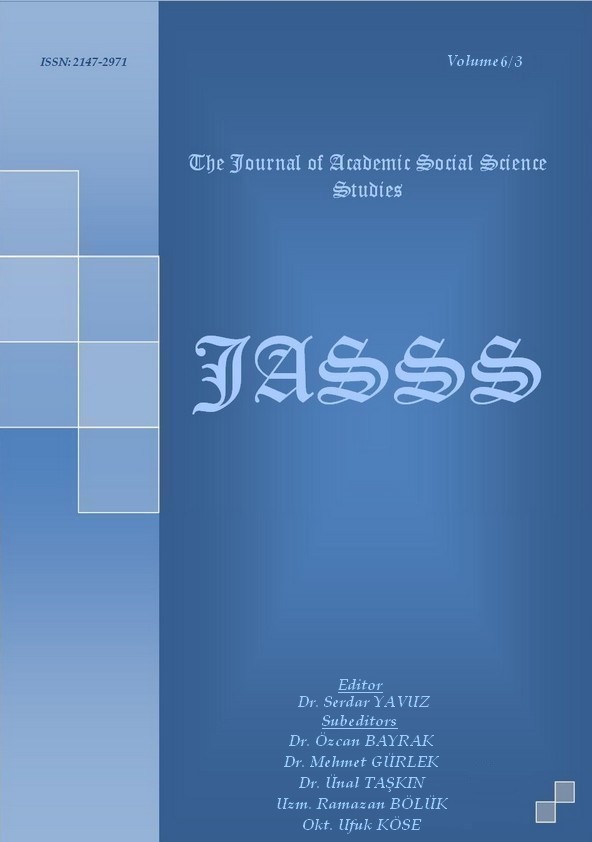Author :
Abstract
Bu araştırmanın amacı; Almanya’da yaşayan eğitim ve psiko-sosyal gelişim süreçlerini burada tamamlayan Türk gençlerinin kimlik oluşumunda ailenin, eğitim sisteminin ve sosyal çevrenin etkisini ortaya koymaktır. Araştırmada betimsel ve nicel araştırma modeli içinde yer alan mülakat ve anket tekniği kullanılmıştır. Teorik alt yapısı ise; nitel araştırma tekniğine göre oluşturulmuştur. Araştırmanın evreni Almanya, , örneklemi ise Niedersachsen, Bremen ve Hamburg eyaletlerindeki Türk öğrencilerdir. Araştırmanın amacına ulaşabilmek için uygun sorulardan oluşan anket ve görüşme formları uygulanmıştır. Verilerin toplanma sürecinde; Almanya’daki uyum çalışmalarına, eğitim sürecine, Türk gençlerinin psiko-sosyal gelişim ortamlarına, sosyal çevrelerine, aile yapılarına, Türk derneklerinden yararlanma durumlarına, sosyal aktivite ve ilgi alanlarına, hayat beklentilerine ve sosyal bütünleşme algılarına ilişkin soruları içeren anket formu uygulanmıştır. Metot bölümünde konu ile ilgili geniş bilgi ve deneyimi olan kişilere görüşme formu uygulanarak derinlemesine görüşme gerçekleştirilmiştir. Saha araştırmasından elde edilen veriler, SPSS 16.0 istatistik paket programıyla analiz edilmiştir. Bu çalışmada bağımlı ve bağımsız değişkenler arasındaki ilişkileri anlamlandırmak üzere Pearson’un ki-kare testi tercih edilmiş ve frekanslar değerlendirilmiştir. Kategorik değişkenler arasındaki ilişkiler için bu testler incelenmiş, P
Keywords
Abstract
The aim of this research is to present the effect of family, education system and social environment in formation of identity of Turkish young people who live in Germany and who complete their education and psycho-social development processes there. Interview and questionnaire method which are included in descriptive and quantitative model were used in the research. Theoretic infrastructure was formed according to qualitative research technique. The population of the research is Germany and sample consists of Turkish students in Niedersachsen, Bremen and Hamburg states. Questionnaire and interview forms consisting of proper questions were used to achieve the aim of the research. In the process of data collection, questionnaire form including questions on adaptation studies in Germany, education process, psycho-social development environments of Turkish young people, their social environments, family structures, benefiting from Turkish associations, social activity and areas of interest, life expectations and social integration senses was applied. In method section, interview form was applied to people with broad knowledge and experience on the subject and in-depth interview was performed. The data obtained from field researches were analyzed with SPSS 16.0 statistics package program. In this study, Pearson's chi-square test was preferred to give meaning to the relationships between dependent and independent variables and frequencies were evaluated. These tests were examined for the relationships between categorical variables and P





